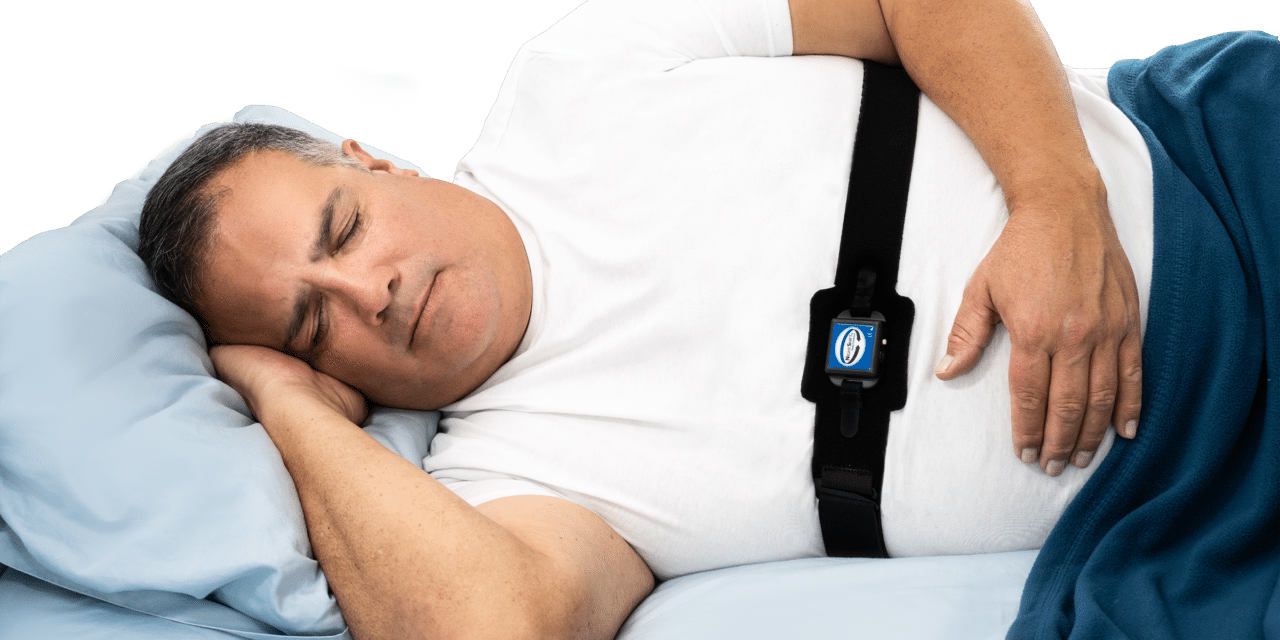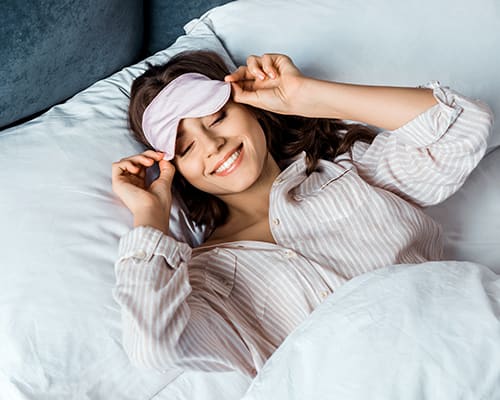Cognitive Behavioral Therapy for Insomnia (CBT-I) - Proven Approaches
Cognitive Behavioral Therapy for Insomnia (CBT-I) - Proven Approaches
Blog Article
Reliable Treatment Solutions for Taking Care Of Sleep Disorders and Enhancing Relaxing Rest
In the realm of health care, the monitoring of sleep conditions and the pursuit for restful sleep are pivotal components of total health. As we navigate the elaborate landscape of sleep problems and seek to boost our sleep experience, a deeper understanding of these treatment solutions may hold the trick to opening a more relaxing and fulfilling corrective trip.
Cognitive Behavior Treatment for Sleeping Disorders (CBT-I)
Cognitive Behavior Modification for Sleeping Disorders (CBT-I) is an organized, evidence-based therapy approach that concentrates on resolving the underlying aspects adding to sleep disturbances. This kind of treatment aims to modify actions and thoughts that worsen sleeplessness, eventually advertising healthy rest patterns. CBT-I generally entails a number of key parts, consisting of cognitive treatment, rest limitation, stimulation control, and sleep health education.
Cognitive treatment assists people recognize and alter negative thought patterns and ideas regarding sleep that might be impeding their ability to drop or remain asleep. Sleep limitation involves restricting the quantity of time spent in bed to match the individual's actual rest period, therefore increasing sleep performance (insomnia solutions). Stimulation control methods help develop a strong association in between the bed and sleep by encouraging people to visit bed only when drowsy and to prevent taking part in promoting activities in bed
Furthermore, rest hygiene education concentrates on establishing healthy rest practices, such as maintaining a regular sleep schedule, developing a relaxing going to bed routine, and enhancing the sleep environment. By attending to these factors adequately, CBT-I offers an efficient non-pharmacological intervention for handling insomnia and improving general sleep top quality.
Rest Health Practices
Having developed the structure of cognitive restructuring and behavioral adjustments in addressing sleep problems via Cognitive Behavioral Treatment for Sleep Problems (CBT-I), the focus now shifts towards exploring important Rest Hygiene Practices for maintaining optimal sleep top quality and general well-being.
Sleep health methods encompass a series of behaviors and ecological elements that can dramatically influence one's ability to drop off to sleep and remain asleep throughout the night. Consistent rest and wake times, creating a relaxing going to bed regimen, and optimizing the rest setting by keeping it dark, silent, and cool are crucial elements of great rest hygiene. Limiting direct exposure to displays before bedtime, staying clear of energizers like high levels of caffeine near bedtime, and involving in regular physical activity during the day can likewise promote far better sleep quality.
Moreover, practicing leisure methods such as deep breathing exercises or meditation prior to bed can help relax the mind and prepare the body for rest. By integrating these rest health methods into one's everyday regimen, people can develop a healthy and balanced rest pattern that supports peaceful sleep and general wellness.
Relaxation Techniques and Mindfulness
Carrying out leisure strategies and mindfulness methods can play a critical role in promoting a feeling of tranquility and advertising top quality rest. Additionally, guided images can assist carry people to a relaxed location in their minds, helping in anxiety decrease and boosting rest high quality.
By including these practices into a going to bed routine, individuals can signal to their bodies that it is time to prepare and take a break for rest. Generally, incorporating leisure techniques and mindfulness methods can significantly contribute to handling sleep disorders and improving general rest top quality.

Medicine Options for Rest Disorders
After exploring relaxation techniques and mindfulness practices as non-pharmacological interventions for improving rest high quality, it is important to consider medicine options for individuals with sleep disorders. In situations where way of life changes and treatment do not provide enough alleviation, medicine can be a useful tool in managing sleep disruptions.
Generally suggested medicines for rest disorders consist of benzodiazepines, non-benzodiazepine hypnotics, antidepressants, and melatonin receptor agonists. Benzodiazepines, such as diazepam, are sedatives that can help generate sleep, however they are commonly advised for short-term usage because of the risk of dependancy. Non-benzodiazepine hypnotics like zolpidem are also utilized to deal with sleeplessness and have a reduced danger of reliance compared to benzodiazepines. Antidepressants, such as trazodone, can be beneficial for individuals with co-occurring depression and sleep disruptions. Melatonin receptor agonists, like ramelteon, target the body's natural sleep-wake cycle and can be helpful for regulating sleep patterns.
It is vital for people to consult with a medical care provider to identify one of the most suitable medicine alternative based on their particular sleep problem and medical history.
Light Treatment for Body Clock Regulation
Light therapy, additionally referred to as photo-therapy, is a non-invasive treatment approach made use of to control body clocks and boost sleep-wake cycles. This therapy entails exposure to brilliant light that resembles all-natural sunshine, which helps to my company reset the body's body clock. By revealing individuals to certain wavelengths of light, typically in the morning or night depending upon the preferred result, light treatment can properly readjust the circadian rhythm to advertise wakefulness throughout websites the day and enhance relaxed rest in the evening.
Research has revealed that light treatment can be particularly helpful for individuals with circadian rhythm conditions, such as postponed rest phase disorder or jet lag. It can additionally be valuable for those experiencing seasonal affective problem (SAD), a kind of depression that usually takes place throughout the cold weather when natural light exposure is reduced. Light therapy is normally well-tolerated and can be made use of together with various other therapy methods for sleep disorders to optimize outcomes and improve overall sleep quality.
Conclusion
Finally, effective treatment solutions for taking care of rest problems and boosting restful sleep include Cognitive Behavioral Treatment for Insomnia (CBT-I), sleep health techniques, leisure strategies and mindfulness, drug alternatives, and light treatment for circadian rhythm policy. These techniques can assist people boost their rest high quality and overall well-being. It is necessary to consult with a health care supplier to figure out the most ideal technique for attending to sleep concerns.
As we navigate the intricate landscape of rest conditions and seek to boost our sleep experience, a much deeper understanding of these therapy services might hold the trick to opening a more relaxing and satisfying restorative trip.
Sleep constraint includes limiting the amount of time invested in bed to match the individual's real sleep period, thus increasing rest efficiency. Regular sleep and wake times, creating a relaxing navigate here going to bed routine, and optimizing the rest atmosphere by maintaining it dark, silent, and cool are essential parts of great rest hygiene. Light treatment is typically well-tolerated and can be made use of in conjunction with various other treatment techniques for rest conditions to enhance outcomes and enhance overall sleep high quality.

Report this page